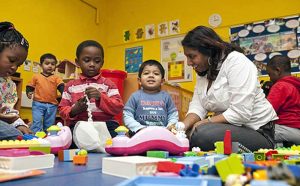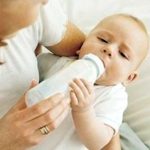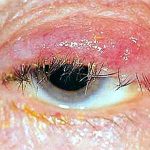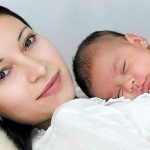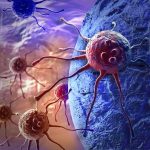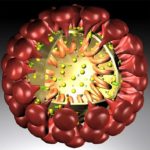The children’s stage of development of the person (Основные периоды детского возраста) can be parted for following periods:
- 1. The period of a pre-natal fetation.
- 2. The period newborn.
- 3. The thoracal period.
- 4. The period of a milk teeth.
- 5. The adolescence period.
- 6. Description puberty period (boys and girls).
The period of a pre-natal fetation lasts on the average 270 days. At this time there is exclusively a foetus rapid growth, the basic functional and morphological features of the child are pawned and formed. Therefore high-grade development of the future newborn depends appreciably on a state of health [ru] of mother, it deliveries, a way of life, a psychological condition, an exercise stress! The conditions of a life of mother during this period are more favorable, the the child will be more healthy. Alcohol, strong tea, coffee, too acute and spicy dishes should be completely excluded from a food of mother.
The period newborn is the period of the adaptation of the child to new conditions of a life. It begins after sorts from the moment of a dressing of a cord and 18-24 days last.
From the moment of a birth in an organism of the child there is variety of changes: there is a pulmonary breath, there is a circulation reorganisation, suction and digestion processes begin, the energy exchange changes, the basic exchange raises.
All basic functions of an organism of the child are in position of unstable balance, and even minor alterations of a condition of environment can lead to serious disturbances of the major processes of vital activity. The organism of the newborn is very acquisitive to pyogenic microbes, in particular to staphilococcuses, streptococcuses, to some strains of an intestinal rod. These originators quite often cause serious toxicoses in newborns. It is possible to carry a sepsis, a pempigus and other purulent diseases of a skin, disease of an umbilical funicle to them, umbilical wounds umbilical vessels. Newborns can be ill with a whooping cough which proceeds at them very hardly. Along with it newborns are unreceptive to variety of infections. They almost are not ill with a measles, a scarlatina, a rubella. The lowered or full immunity of newborns to some infections speaks passive transfer to the child of maternal antibodies through a placenta during pre-natal development and through milk at feeding by a breast.
Duration of the thoracal period is defined by conditionally necessary term of feeding of the child thoracal milk; at the majority of children it comes to an end to the extremity of the first year of a life. To this period there is an intensive growth of a body of the child. It causes the raised requirement for nutrition. But as digestion organs in the functional relation are still insufficiently developed, the slightest errors in a diet conduct to acute and chronic digestive disturbances. The expressed instability of process of a metabolism at intensive growth of a skeleton does thoracal children predisposed to disease by a rachitis; some children have so-called anomalies of the constitution — exudative, neuropathic and a lymphatic diathesis. Besides, children of thoracal age have a predilection to diffusive reactions, and consequently at various diseases (a pneumonia, the flu, acute catarrhs, otites, a dysentery, etc.) Easily arise cramps, the phenomena of a meningism and toxicoses.
The period of a milk teeth covers age from 1 year till 6-7 years. At this time the central and peripheric nervous systems of the child reach fuller development. He starts to speak well, a stock of representations about world around at it external implications of emotional experiences considerably are enriched, extend and go deep. Predilection to diffusive reactions considerably decreases, therefore a number of diseases (a pneumonia, illnesses of a gastroenteric tract, etc.) Proceed the same as at adults. In this period, and especially in preschool, there are diseases [ru] in which pathogenesis the big role is played by an allergy (a bronchial asthma, an urticaria, rheumatic disease) is more often. There are acute children’s infections is more often, possibility of a becoming infected and disease by a tuberculosis, a poliomyelitis increases.
The period of adolescence from 7 till 16 years. It is parted on younger school and average school age. At children of younger school age the basic organs reach full development. The morphological differentiation of cells of a cortex of a brain and spending ways comes to an end also.
Children of average school age have secondary sexual signs, the role of hormones of sexual glands, thyroid glands and a cerebral appendage raises; function goitrous glands considerably weakens. Endocrine dysfunctions are often observed. Frequency of rheumatic disease, diseases of heart[ru], nervous system is enlarged.
The puberty period (the senior school age) from 13-14 till 18 years at girls, from 15-16 years till 19-20 years at boys. For this age shifts from the central nervous and endocrine systems are especially characteristic: development of secondary sexual signs comes to an end, the sufficient functional maturity of the sexual apparatus is taped. In interaction of glands of internal secretion there are rather essential shifts: hormones of sexual glands suppress thyroid gland influence a little, influence of hormones of adrenals and the insular apparatus of a pancreas raises. Function thymus stops, it will atrophy. From diseases functional disorders of cardiovascular system and psychoneuroses become frequent, deviations from the sexual apparatus are taped. Acute children’s infectious diseases are less often observed, the tuberculosis exacerbation rather often takes place. Clinic of the majority of diseases same, as at adults.
Great people about children:
Agatha Christie:
It seems to me that one of the greatest successes in a person’s life is a happy childhood.
Valery Sinelnikov:
If I want my children to be happy, then I have to be a happy person myself.
Poem by Valentina Shemyakina ” take Care Of your children»
Take care of your children,
Their antics do not scold.
The evil of his bad days
Never tear them apart.
Do not be angry with them seriously,
Even if they were guilty,
Nothing is more precious than tears,
That with eyelashes loved rolled,.
If belching fatigue of the legs
To cope with it no urine,
Well, You will approach the son
Or the daughter will reach out.
Hold them tight.,
Children’s affectionately cherish
This happiness — a short moment,
Be happy hurry.
It will melt like snow in the spring,
These Golden days will flash
Leave the hearth and native
Grown-up your children.
Flipping through the album
With photos of childhood,
Sad to recall the former
About those days when we were together.
How will You want
In this time again to return
To them a little song to sing,
Cheeks lips soft to touch.
And while in the house the laughter of children,
From toys have nowhere to go,
You are on the light happiest of all,
Take care of OK, please, childhood!
